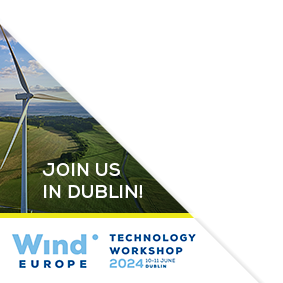Posters
Siblings:
SpeakersPostersPresenters’ dashboardProgramme committeeSee the list of poster presenters at the Technology Workshop 2024 – and check out their work!
For more details on each poster, click on the poster titles to read the abstract.

PO078: Addressing and Resolving Discrepancies in Wind Resource and Metocean Studies for Offshore Wind Farms.
Rémi Gandoin, Senior Specialist, C2Wind
Abstract
Wind resource/yield assessments and metocean studies (site conditions assessments) are two faces of the same coin. When developing and operating offshore wind farms, carrying out these analyses in a coordinated and efficient manner is often a challenge. This is in part due to differences in scope and schedules, and in part for technical reasons. One of the main differences between the two types of studies is the choice of the primary wind dataset; while wind resource studies prefer to use near hub height LiDAR or mast measurements supplemented with mesoscale model time series, metocean studies rely typically on 10 m reanalysis datasets (adjusted, when necessary) for part- or (very often) most of their modelling. This often leads to discrepancies between the long-term hub height wind climate (wind speeds, wind directions, shape of the distributions, and correlation between wind and waves) used for design- and yield purposes. In this presentation, we address this issue and propose a simple method for minimizing discrepancies between wind resource and metocean hub height wind speed- and direction time series. After describing shortly how these time series are typically derived, we show examples of discrepancies and their impact on the project. Then, we propose a simple analytical method (from the existing literature) for extrapolating reanalysis time series of surface wind speed to hub height, and then adjusting these to match that from the wind resource study. Validations against floating LiDAR measurements in multiple regions and with varying stability conditions will be shown, including an assessment of the wind-wave correlation. The added value of this method compared with more complex and costly modelling options (like, for instance, adopting a mesoscale model as input to the metocean study) will be discussed using recent, publicly available datasets in the Dutch North Sea. A high-level roadmap for improving current- and future uses of reanalysis datasets for combined wind resource- and metocean studies will be provided. Overall, this presentation will provide the audience with a robust and simple set of tools to address and resolve discrepancies between wind resource and metocean studies.




